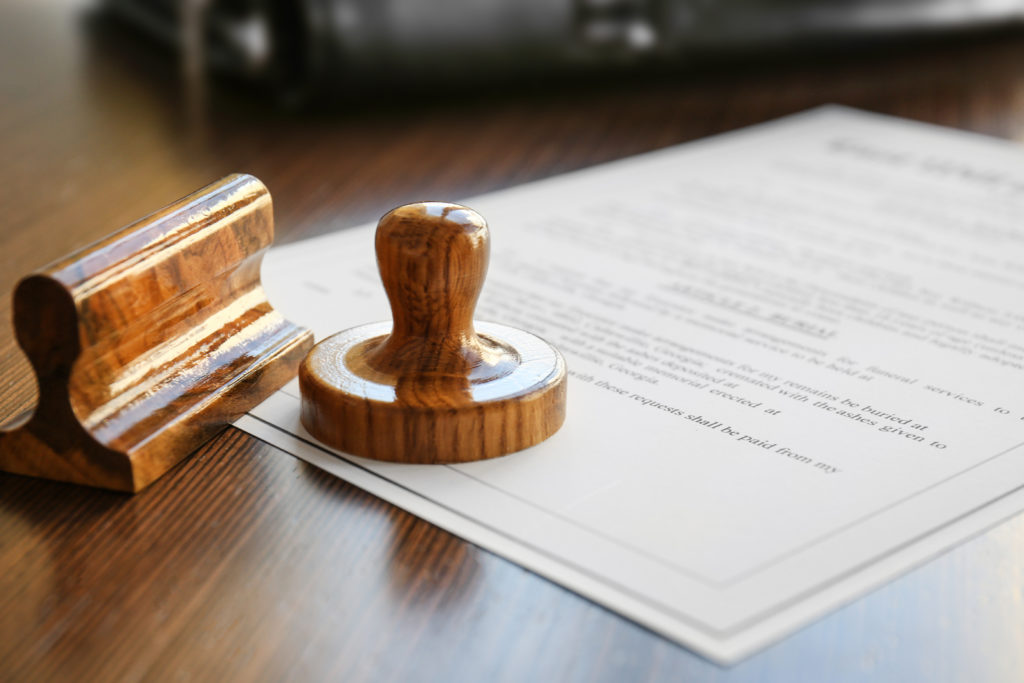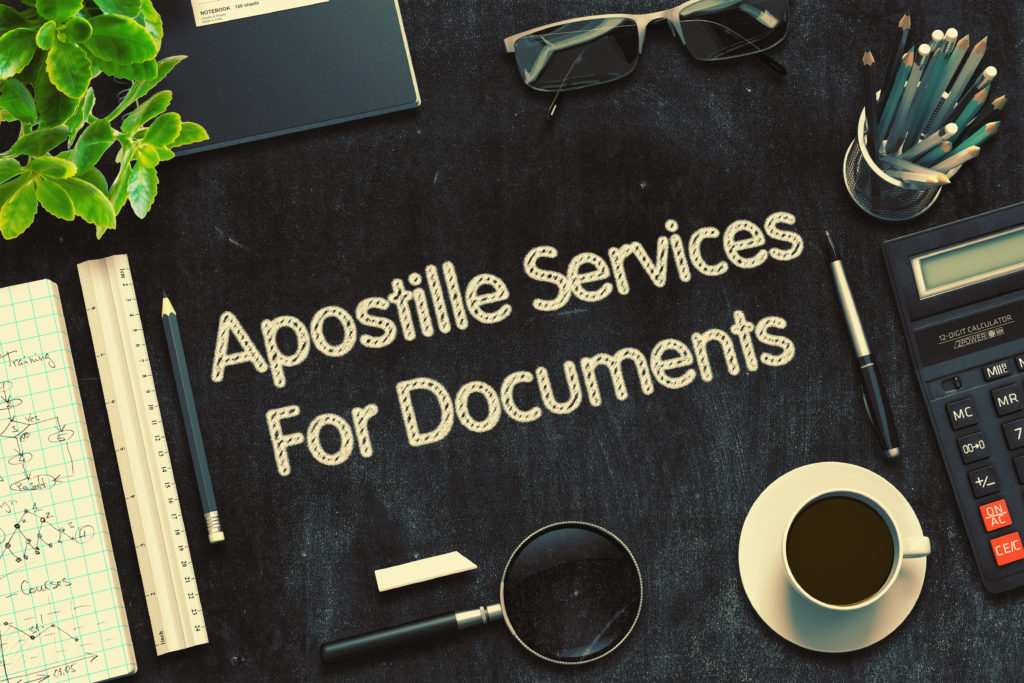At some point or another, you are going to need to get a document notarized. In order to do that, you will have to seek out the services of a notary public. While notarization is a relatively simple process, it carries immense legal weight. Being a notary public is big job with important duties and responsibilities. Due to the constant need for notarizations, notarial services are always in demand. In this article, we are going to tell you exactly how to become a notary.
What is a Notary Public?
Before we can dive into how to become a notary, let us first clarify what a notary public (NP) is. A NP acts as an unbias witness to the signing, or notarization, of important documents. To be more specific, a NP helps prevent fraud and forgeries. Therefore, the role of a NP is quite important. Read on to find out exactly what is involved in the notarization process.
What Happens During a Notarization?
When done correctly, the process of notarizing a document is relatively simple. While specific requirements and notary laws vary by state, the basic process tends to be similar in most states. Below are the five basic steps of a notarization.
1. Identification
A NP does much more than simply watch someone sign a piece of paperwork. First and foremost, a NP must confirm the true and authentic identity of each signing party. They must do this by comparing the person signing to a current, valid form of photo identification. The most commonly used forms of identification are a valid passport or driver’s license. Certain states will also allow military or state-issued photo identification cards. Birth certificates and social security cards are not accepted.
In general, the basic elements of the identification card should include:
- A recent, accurate photo
- Brief physical description (eye and hair color, height, etc)
- Issuing authority (i.e. the state of Texas for a Texas driver’s license)
A quick google search will tell you which documents are accepted in your particular state.
2. Confirmation of Consent
Once the NP has properly confirmed the identity of all signing parties, they will confirm consent. That is to say, the NP will ask the person signing if they are doing so by choice and on their own free will. This is an important step in fighting fraudulent signatures. Sadly, it is not unheard of that someone is forced to sign a document against their will.
Furthermore, the NP will confirm that the signing party understands the document in full. This understanding should be reached before the point of notarization. A notary is not legally allowed to advise upon the contents of a document they are notarizing. More on the difference between a NP and a lawyer later.
3. Oath of Affirmation
Not all notarizations require an oath or affirmation. Specifically, a document that calls for a jurat notarization will require a spoken oath. An oath is a solemn promise to God confirming truth and good intentions. An affirmation, on the other hand, makes the promise based on an individuals honor as opposed to any higher power. However, both oaths and affirmations carry the same weight.
You have likely heard of the Oath of Office. This is the oath a newly elected President of the United States takes promising to protect and grow the country. Furthermore, all doctors are required to take the Hippocratic Oath promising to uphold an ethical medical practice. Clearly, the importance of an oath should not be taken lightly on either end of the promise.
The Notarization Oath Process
To further clarify, the taking of an oath is a simple act but bears great importance. The NP will ask the docuement signer to raise their right hand during the oath. This easy gesture illustrates the seriousness of the oath. You have likely seen this demonstrated in legal proceedings in the courtrooms of real life and that of television legal dramas. However, in the case of notarization, the signer does not have to put their other hand on top of the bible. This action, in general, is not required by law but is practiced by most notaries to heighten the impact of the oath.
The NP will then recite the oath or affirmation. For an oath, they might say “Do you solemnly state that the evidence you shall give in this issue (or matter) shall be the truth, the whole truth, and nothing but the truth, so help you God?”. Then the document signer must verbally confirm by saying “I do” or “Yes”. A non-verbal acknowledgment like a head nod is not acceptable.
4. The signing of the Document
Finally, after the above proverbial song and dance, the signing of the document can officially happen. All necessary signatures must occur in the physical presence of a NP. In the event amendments are made to the document, the original notarization is, therefore, void and the process must start over again. All signing parties should be notified if, and when, amendments are made.
5. Notary Stamp
The final piece of the notary puzzle is the signature and stamp of the NP themselves. The appearance of a notary’s stamp, or seal, will vary from state to state. Some are round, some are rectangular, some even have the seal of the state. However, all notary stamps will have the same three basic pieces of information:
- The name of the notary
- Their state of certification (Texas, California, etc)
- The expiration date of their commission
To be clear, when the current notary commission expires, any documents stamped with that particular seal do, in fact, remain valid.
How to Become a Notary Public
Now that you thoroughly understand the process of notarization, let’s dive into how to become a NP. First of all, the specifics of the process vary from state to state. Later in this article, we will outline a few state-specific notary qualifications. In the meantime, let’s cover some general best practices for becoming a certified NP.
Notary Qualifications
In general, across America, you must be over the age of 18 with no criminal record to become a NP. Certain states require that notary applicants be able to read and write in English. Furthermore, most states require that you be a legal resident of the state in which you are applying for a notary commission. However, some states will allow the residents of a neighboring state to apply for a local notary commission. This is especially beneficial in markets such as the northeast, where travel between states is entirely common.
Notary Public Classes
While notaries bear an important role, most states require little to no training for the gig. In fact, only 20% of states require training classes. Those ten states are Pennsylvania, North Carolina, Oregon, California, Colorado, Nevada, Missouri, Florida, and Montana.
However, most states strongly encourage applicants to voluntarily take a notary training course. Each state will typically recommend state-approved courses. Considering state-laws vary widely, understanding the laws of your specific state makes a big difference in notary training.
Classes can be done online in as little as two to six hours. Notary classes usually cost less than two hundred dollars. Basically, you don’t need to spend four years and tens of thousands of dollars to become a certified NP.
Notary Public Certification
As with training, a surprisingly small number of states require applicants to pass a notary test. The states that do require an exam are:
- Colorado
- California
- Utah
- Oregon
- North Carolina
- Nebraska
- New York
- Maine
- Louisiana
- Montana
Interestingly enough, only half of the aforementioned states also require training. Therefore, only five states in the U.S. require both notary training and certification.
Most notary exams take less than an hour to complete. Often times, test staff will require you provide a fingerprint for your certification. Once you have passed your test, you must fill out and submit an official notary application form. You will likely mail it to your local secretary of state’s office. Depending on your state’s requirements it can take anywhere from four weeks to six months to become a certified NP.
Notary Public Salary
As with every other aspect of notarizations, your exact salary varies widely depending on your state of commission. Many notaries work on a freelance level, in which they make anywhere from $13-22 an hour. This number varies depending on a number of factors. For one, notaries typically charge on a per-signature basis. Most states legally cap the amount a notary can charge. California, for example, caps notary fees at $10 per signature. Documents vary in complexity, and therefore the number of signatures requires. Hence why the income level of a notary has such a broad range.
Conversely, some people may require a notarization certification as a part of their regular salaried job. That way, one could make a more consistent salary while using their notarization skills. Therefore, being a certified notary is a nice way to be more competitive in the job market.
Notary License
Once you have all the necessary training and certifications you will be eligible to get your notary license, more commonly referred to as a “commission”. As previously mentioned, a notary’s stamp will bear the expiration date of their commission. The length of time a notary commission is valid differs by state. The most standard term is usually 2-4 years. However, some states commissions last as long as ten years before expiration.
Notary Supplies
There are three primary supplies necessary to be a working notary public.
- Notary Stamp (Seal) – Be sure to meet your state requirements when ordering your unique notary stamp
- Notary Certificate – This is where you (the notary) will sign and stamp a document. Specifics of a notary certificate vary by state and type of notarization required
- Journal – While not legally required, it is a very good idea for notaries to keep a journal of their transactions (more on this later)
Nationalnotary.org has an impressive list of notary requirements by state. This guide will help you navigate the laws and requirements mandated by each individual state.
Notary Journal
As an important tool in the notary’s toolkit, it is important to talk more about in-depth about notary journals. First of all, a notary journal is a place where notaries keep a written record of every notarization they perform. Many documents requiring notarizations deal with items of topics of great importance. In the event a document is altered, lost, or challenged in court, a properly kept journal can come in handy.
Notary journal requirements, you guessed it, vary by state. For example, Arizona requires notaries to keep a paper journal. Tennesee, on the other hand, requires notaries to document their transactions in a well-bound book.
Information in a Notary Journal Entry
Generally speaking, the following information is ideal for a proper journal entry:
- The time, date, and location of the notarization
- Type of notarization performed (jurat, acknowledgment, etc)
- Title of the document signed (as well as the date it was drafted)
- The name and address of every individual signer
- Form of identification provided by each signing party
- The signature(s) of the signer
- Fee for notarial service
- The right thumbprint of the document signer
A notary must complete their journal entry in the presence of the signers at the end of the notarization. This helps prevent fraud on the end of the notary themselves. Additionally, since a thumbprint of the signer is required for documentation, it is handy to have the signer around.
Notary Surety Bonds and Insurance
As you may suspect, a notary is subject to a decent amount of legal risk. Therefore, before you begin notarizing documents, it is vital not to overlook the importance of insurance.
Errors and Omissions Insurance
These days, there is insurance available for almost anything. In the case of a notary public, the necessary insurance is called “Errors and Omission” (E&O) insurance. E&O insurance comes in handy when the inevitable plight of human error occurs. In the event that you make a mistake during a notarization, E&O protects your professional and personal assets.
Better yet, errors and omissions insurance will cover you in the event your client committed fraud. Therefore, releasing you from liability in a lawsuit. Protect yourself and enjoy piece of mind with errors and omissions insurance.
Notary Bonds
While E&O insurance protects you, the notarizer, a bond protects the state in which you are commissioned. Most states require you to purchase a bond to protect the state from any potential notary errors. Texas, for example, requires their notaries to hold a bond in the amount of $10,000. This bond typically costs a one-time fee of around $75. This bond, in Texas, will last for the duration of the notary’s commission of four years. If a notary chooses to renew their commission upon expiration, they will be required to purchase another bond.
Notary by State
As promised, let’s detail a few specific examples of becoming a notary by state. As we have continually pointed out, state requirements vary vastly in a number of ways. Read on to experience some of the differences.
How to Become a Notary in Florida
Florida, as you may recall, is one of the ten states that does require notary training. The state-approved course is three hours long. However, Florida does not require that applicants take an exam. Upon completion of your training course, you will receive a certificate that must be submitted with your application form. In Florida, you are required to have a $7,500 bond to protect the public and the state from any potential notarization errors you may accidentally make.
Nationalnotary.org has a full list of requirements and documents necessary for becoming a notary in Florida.
How to Become a Notary in Texas
Unlike Florida, Texas does not require training. Furthermore, the state of Texas does not require applicants to take an exam. However, Texas does offer state-specific training materials. Nevertheless, it is highly recommended that you familiarize yourself with Texas state laws and best practices.
In order to legally notarize documents in Texas, you have to acquire a $10,000 surety bond. Once you have your bond, you can submit your application and the $21 application fee. Once your application is approved, it will take 2-4 weeks to receive your commission. A commission lasts for a period of four years in the state of Texas.
How to Become a Notary in NY
As previously mentioned, most states merely require applicants to be over 18, free of a criminal record, and a legal resident of the state. New York, however, has several additional requirements. In addition to the aforementioned, in order to become a notary in New York you must also:
- Hold a high school diploma (or public schooling equivalent, such as a GED)
- Have a good moral character
- Be a U.S. citizen
- Live or work in the state of New York (many people commute into NYC for work from surrounding states)
Special training is not required in the state of New York. However, taking and passing an exam is. The exam in question is a multiple choice, closed book, hour-long test. If you meet all the requirements, you must submit an application form and pay a $60 application fee.
New York, unlike Texas and Florida, does not require you to have a surety bond to protect the state. However, procuring your own E&O insurance is always a good idea.
Interestingly enough, New York does not require the use of a stamp or a journal. As always, it is solid best practice and you should consider using both anyway.
Notary vs. Lawyer
To extrapolate on an earlier topic, a notary is not to act as an attorney when notarizing documents. Notarizations typically deal with documents of great importance. More often than not, the documents are full of complicated and confusing legal jargon. Therefore, it is not uncommon for the signees to look to a notary for clarification before signing. However, notaries are not legally allowed to translate or advise upon the contents of a document they are notarizing.
As illustrated in this article, most states do not require any training to become a notary. Even those states that do, require only a few hours of training. Lawyers, on the other hand, undergo years of rigorous education and training. Therefore, lawyers are much more qualified to give thoughtful, informed legal advice when it comes to complex documents.
A lawyer can, however, become qualified to complete notarizations. So long as they do not notarize documents in which they advised upon or drafted.
Notario Publico vs. Notary Public
Sometimes notarizations deal with immigration documentation. Or perhaps you have a client that is primarily Spanish-speaking. If that is the case, it is essential to understand the difference between a “notario publico” and a notary public. While they sound very similar, their subsequent meanings are actually quite different. In Hispanic cultures, a notario publico essentially has the same rights and training as an American attorney. Therefore, unlike a notary public, a notario publico can draft legal documents and give legal advice.
How to Become a Notary: In Conclusion
With over four million notaries in the United States alone, you are in good company if you wish to become a notary. While notaries play very important roles in preventing fraud, the process of becoming one is relatively quick and easy. Notary laws vary by state, so be sure to check with your local authorities on your specific requirements.
Sources
https://www.nationalnotary.org/notary-bulletin/blog/2015/05/your-guide-notary-oaths-affirmations
https://www.nationalnotary.org/knowledge-center/about-notaries/how-to-become-a-notary-public
https://www.nationalnotary.org/florida/how-to-become-florida-notary
https://www.nationalnotary.org/new-york
https://www.nationalnotary.org/texas
https://www.nationalnotary.org/support/faq/insurance#eo1
https://www.nationalnotary.org/florida/become-a-notary




